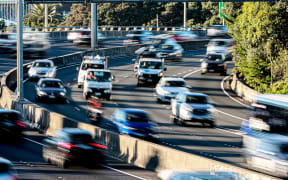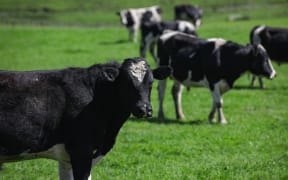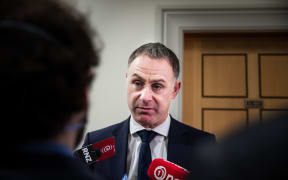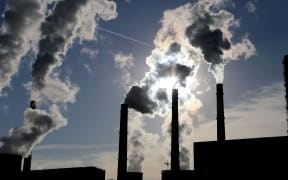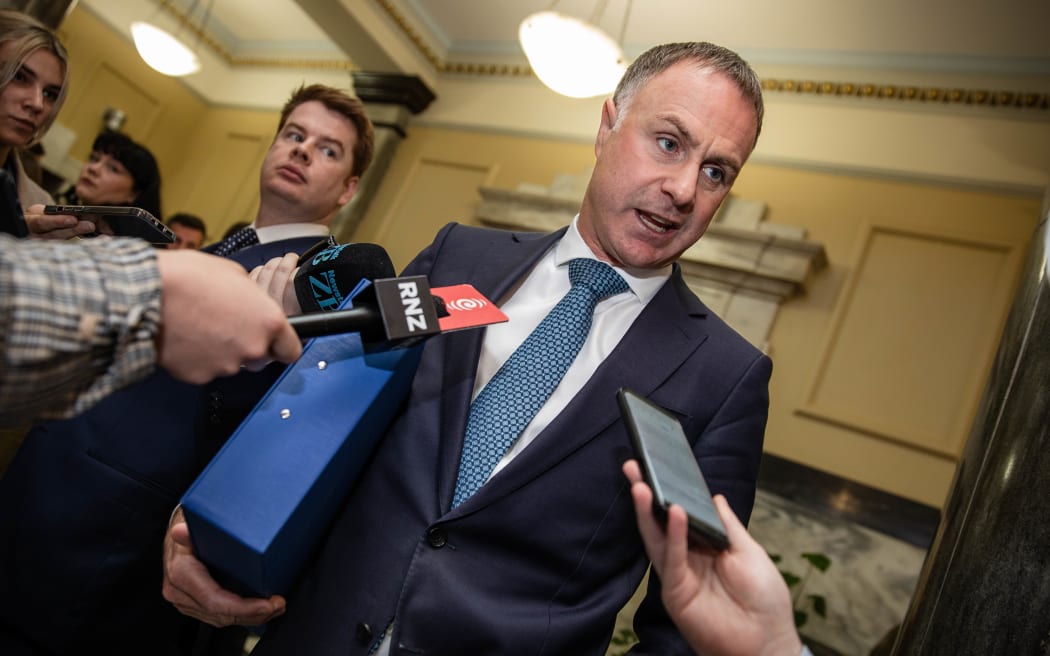
Climate Change Minister Simon Watts hopes the independent review will put to bed the debate about how potent methane is and how it contributes to climate change. Photo: RNZ / Angus Dreaver
Analysis - The Climate Change Minister has defended the government's methane review, saying it "will increase understanding in ... methane science" and put the debate to bed.
The Climate Change Commission chairperson and office of the Parliamentary Commissioner for the Environment both say the science of methane's warming is already well settled, and it is now a political choice what to do.
Asked if the review was a duplication, Minister of Climate Change Simon Watts said it would "provide us with up-to-date, evidence-based analysis" and there was a "possibility" the methane target would change as a result.
"The independent review [will] hopefully put to bed, for now, the debate about how potent this gas is and how it contributes to climate change," Watts said.
An independent panel, whose members have not been announced, will review the current target of 24-47 percent cuts by 2050 to see if it is consistent with methane from New Zealand farms adding 'no additional warming' to the atmosphere.
Watts said the review would inform the government's response to advice on the target from the Climate Change Commission.
Long, hot debate
Farming groups have been calling for a target of 'no added warming' - likely lower than the current one - saying it would be fairer and more in line with what carbon emitters have to do.
Unlike methane, carbon dioxide stays around, heating the planet, for centuries after carbon pollution has stopped. Even once carbon emissions reach net-zero in 2050, old emissions will still be heating the planet.
Farmers argue they should also be allowed to keep heating the planet with their emissions after 2050, or they are doing more than carbon emitters.
Successive governments have agreed - the debate is over how much they should be allowed to heat.
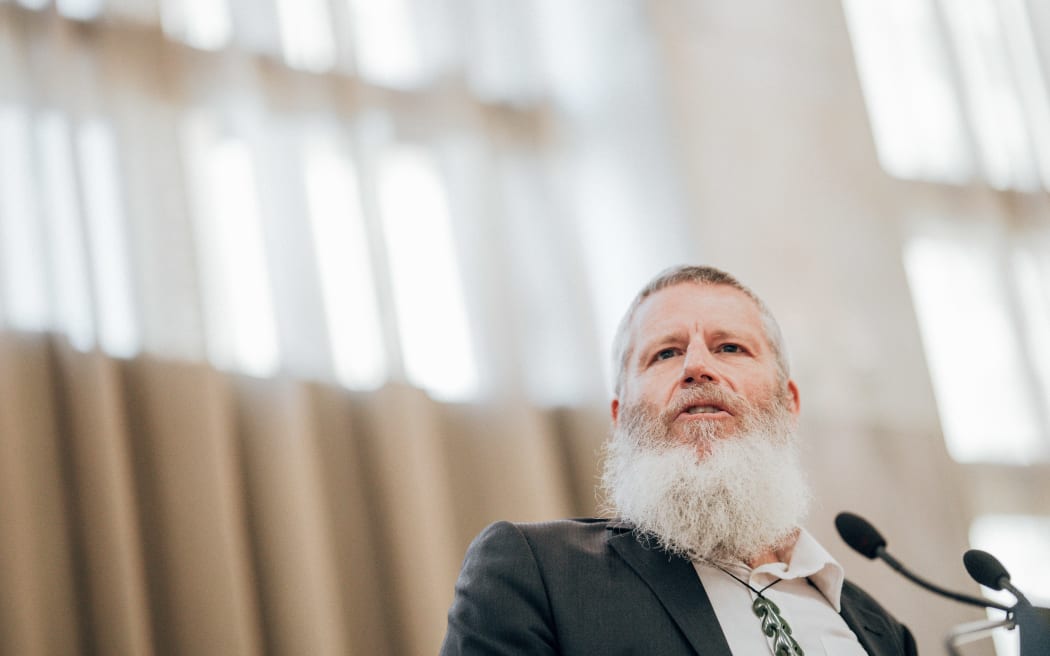
Climate Change Commission chair Rod Carr says if the government lowers the methane part of the target, it will need to do more in others areas to make up the same overall effort. Photo: RNZ / Dom Thomas
Cooling the room?
Methane's shorter-lived heating effect is already reflected in New Zealand's 2050 target, which allows methane emissions after 2050. Currently, there is no requirement to offset these ongoing gases with trees or any other measures, unlike carbon dioxide emissions.
Farmers want the target cut further, so they are allowed to make roughly the same amount of heating after 2050 they are making now.
Two previous studies found, depending on assumptions, that could mean cuts of 10-22 percent and 15-27 percent - lower than 24-47.
But the idea of keeping farming's heating output the same is contentious.
Opponents say the climate crisis needs all hands to the pump, and every bit of heating matters.
They argue what is fair is more about the level of cost and effort required, between different sectors.
Farming groups say if they reduced methane by the top end of the target range of 47 percent, they would be 'cooling' the planet. But climate commission chair Rod Carr disputed that on Nine to Noon, on Tuesday.
He likened it to turning on a heater in a room, then turning the knob down and claiming to be 'cooling' the room (while the heater is still running).
Carr said the true debate was what was a fair effort, and what was achievable for different groups.
Monday's advice
The Climate Change Commission - the body set up to take the political swings out of climate policy - has tentatively concluded there is enough evidence to consider raising the overall 2050 target, and "no evidence" supporting lowering it.
That includes all the main gases: Methane, nitrous oxide and carbon dioxide.
The public can submit on the document.
Carr said if the government did lower the methane part of the target, it would need to do more in others areas to make up the same overall effort - either with deeper cuts in other sectors, or paying other countries to take more climate action for us, under an international deal.
He said there was "reason to believe" New Zealand could meet its interim target of 10 percent lower methane by 2030, and cut 26 percent by 2040, from 2017 levels. But "it gets much harder after that", he said.
The commission obtained advice on the progress of methane-cutting tech, suggesting a methane-cutting cow medicine, Bovaer, might be available here in a slow-release pill (suitable for grazing cows) in 2039.
Selective breeding and, possibly, other technologies would come online before that, it concluded.
The commission is reviewing the 2050 targets as part of its usual five-yearly report.
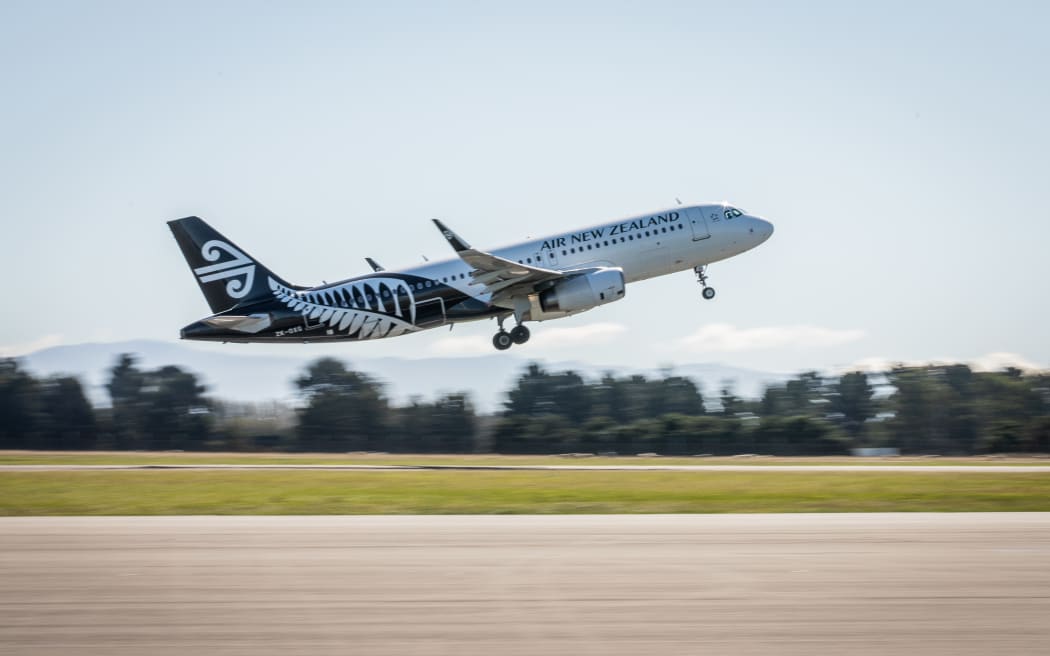
New Zealanders air travel is equal to about 2 percent of gross emissions but that is likely to grow, Carr says. Photo: RNZ / Nate McKinnon
'No new evidence'
The Climate Change Commission's report - out Monday - found the only relevant change in scientific understanding of climate change since 2019 was a shift to higher alarm levels about the climate impacts, which would hit harder and sooner than previously understood.
Carr said nothing had changed in the scientific understanding of methane's heating impact since 2019, when the methane target was set.
He said it was always understood methane was different from carbon dioxide and "that's why we have a split-gas target", requiring long-lived gases (nitrous oxide and carbon dioxide) to reduce to net zero, but allowing methane to keep being made.
The commission's work found New Zealand could get to net zero carbon dioxide by 2042, with only methane emissions left.
Last week, Parliamentary Commissioner for the Environment chief economist Geoff Simmons questioned the value of re-reviewing methane science, saying the science had been done "comprehensively" and the real debate was over the politics and what was fair for farmers to do.
That was supported by climate scientist Nathanael Melia, a specialist in the area. He agreed with lowering the methane target, and cutting more off carbon dioxide instead, but said the review would not add anything new to scientific understanding.
Melia said methane studies were highly sensitive to how the question was asked, so different governments with different views could get different answers and still claim scientific support.
Long-haul conundrum
The commission also wants submissions on whether New Zealand should count long-haul flying and shipping towards its climate budgets.
Historically, countries left these out of national targets, but the UK, USA and Europe now include them, Carr said.
He said New Zealanders' air travel was equal to about 2 percent of gross emissions. "The trouble is, it is likely to grow quite quickly."
While airlines faced a tough challenge, "shipping lines are already moving to experiment with much lower emissions fuels and it looks like they have a range of options", he said.
"By giving transparency to [these emissions] ... what we measure ... we're more likely to manage."
New Zealand's trading reputation might benefit from taking these emissions on, he said.
But there might be impacts on cost of travel and other factors, which the commission says it wants to hear about.
